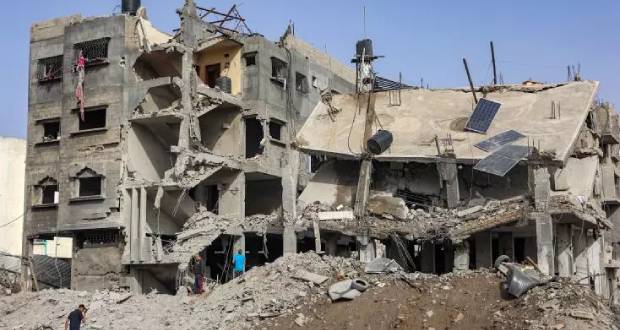Publicité
Weak Economies versus Stronger Cyclones
Par
Partager cet article
Weak Economies versus Stronger Cyclones

Donald Trump may not want to see what we are witnessing in the Indian Ocean. Water levels are consistently rising every year. Weather patterns are becoming more erratic and extreme. Climate change is bringing stronger cyclones, which tend to have a dramatic impact on human security and infrastructure. This week, at least 33 people were killed and many are still missing in Madagascar after cyclone Ava slammed through the island. With the flooding and landslides caused by the storm, more than 25,000 have been compelled to evacuate their homes.
Last month, Shashi Tharoor, a former UN under-secretary-general and currently an MP for the Indian National Congress, witnessed firsthand the devastating cyclone Ockhi which swept the southern tip of India, causing immense damage to parts of Kerala, Tamil Nadu, and Lakshadweep. His conclusion was that most victims were fishermen from the districts of Thiruvananthapuram (in Kerala) and Kanyakumari (in Tamil Nadu) who, owing to the lack of an appropriate and timely cyclone alert, had ventured into the rough ocean, unaware of the danger they put themselves in. “To protect India’s coastal communities, policymakers must urgently undertake a comprehensive review of the reasons why the cyclone was so devastating, and how the impact of a future disaster could be mitigated.”
As a matter of fact, the cyclone alert was issued by the India Meteorological Department after Ockhi had already struck and caused devastation in the country. On top of that, the initial rescue efforts were insufficient when faced with the scale of the challenge. It took more than a day for the Coast Guard and the Indian Navy to have enough resources in the affected areas. “It was too late to rescue those who had been clinging to the wreckage (…) Official search and rescue efforts saved only a handful of lives”, lamented Shashi Tharoor.
According to development experts, the main driver for the increase in disaster risk is not limited to intensity and frequency of extreme events but also to development processes exposing more people and assets to climate-related hazards without having the necessary resilience.
The headlines are inexorable when the proletariat of affected countries challenges the government’s accountability when it feels that adequate preventive measures were not taken during a cyclone. The State therefore finds itself forced into the position of financier of last resort, through its own budget, to compensate for losses not covered by existing financial mechanisms.
The United Nations has estimated that every dollar invested in adequate preventive measures saves approximately four dollars in post-disaster relief. Over the last decades, most disaster-prone island states, including Mauritius, have gradually put in place effective prevention and disaster-preparedness measures. However, measures taken – and this can be clearly seen in our region – are “piecemeal”, and more often than not, are more suited to past situations rather than future risks.
***
For a long time, we have advocated that financial risk-sharing mechanisms, listed under the priority 4 of the Hyogo Framework for Action, have become more crucial with climate change. A new approach to risk transfer mechanisms has begun to grow in recent years, particularly under the impetus of the World Bank and UN Office for Disaster Risk Reduction. The approach involves States being insured against future risks and not necessarily future disasters due to the latter’s erratic nature. Economic losses must be “insured” so that States and their productive sectors can cope without stifling development. The mechanism enhances but does not replace preventive measures, which should be built on solid modelled data based on each country’s vulnerability. The system must be implemented in line with the government’s fiscal policy in order to be effective and should ultimately be considered at the regional level to ensure an even more solid foundation.
Risk transfer is a core component of the ISLANDS Project / Indian Ocean Commission for the setting up of a Regional Platform for Financial Risk Transfer Mechanisms. We need to raise attention to policy awareness centred around reduction risk mechanisms against natural disasters and climate effects in the SIDS (Small Island Developing States) of the South West Indian Ocean. Financial risk transfer mechanisms must be intelligently designed with close focus on budgetary and sustainable development strategies, so they catalyse disaster risk financing, experience sharing, capacity building and standardisation of risk assessment. Through cost benefit analysis, regional risk pooling for reserves and for insurance purposes is bound to provide almost immediate access to financial resources following any severe event.
Publicité
Les plus récents






